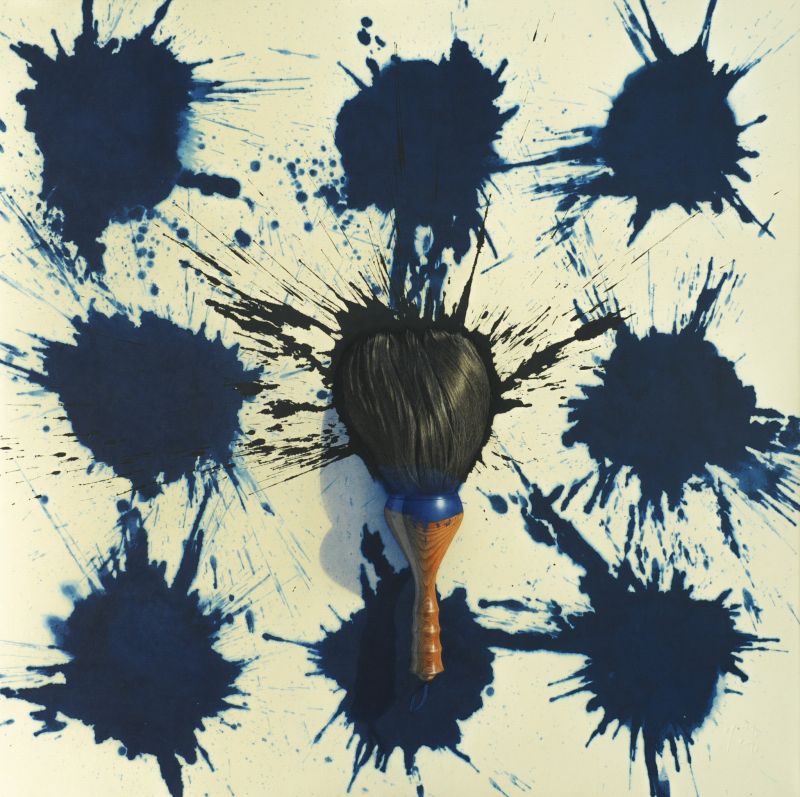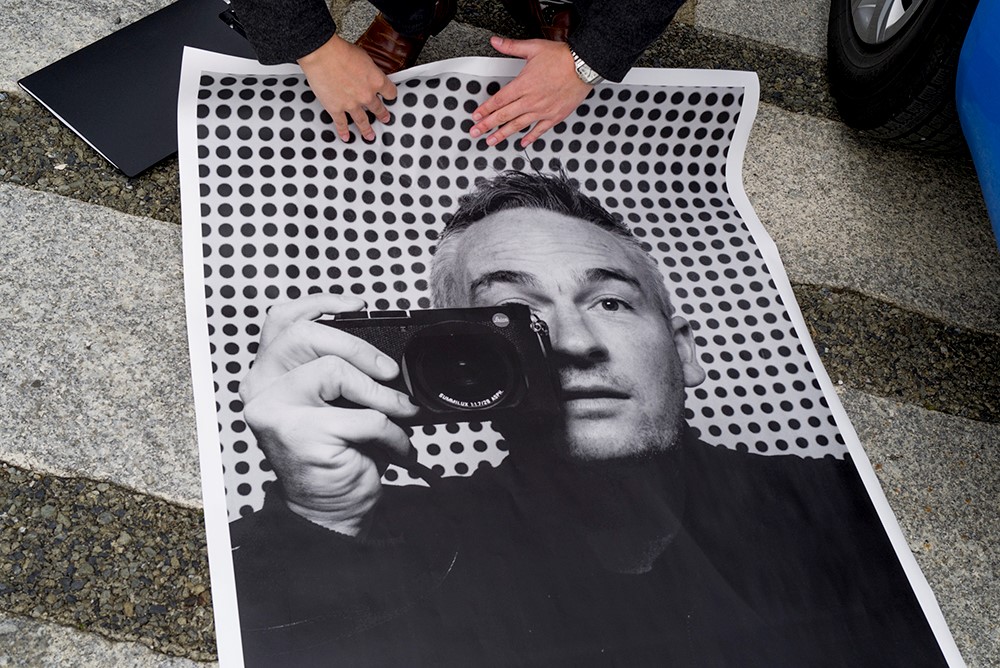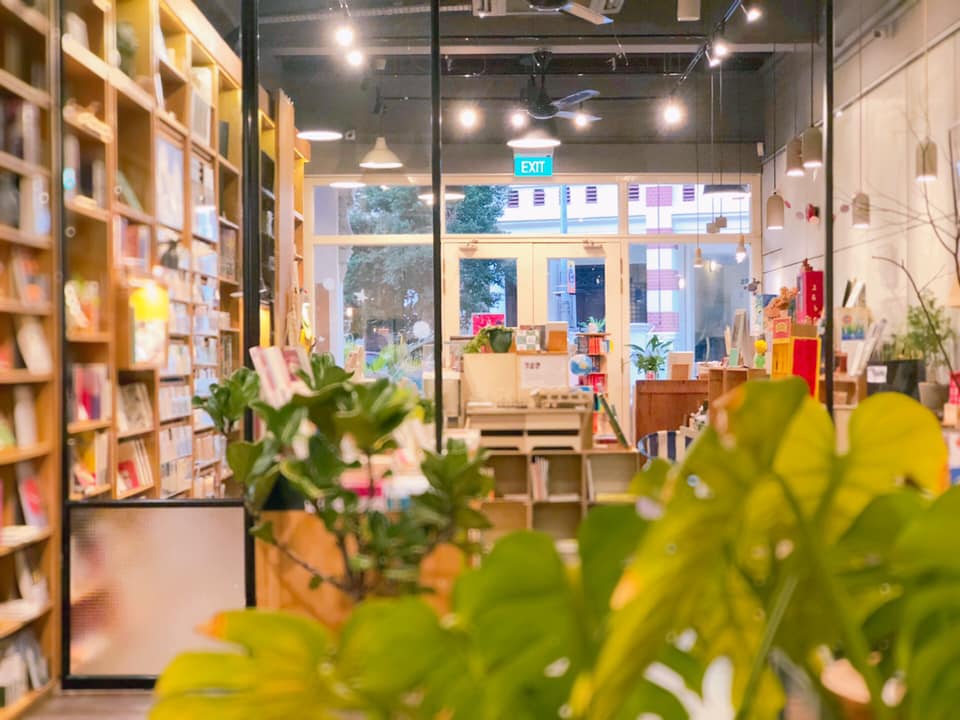Consider the dining table in a traditional Chinese household. At the head of it sits the father, man of the house and unofficial dictator; there is a certain unspoken decorum the children must carry themselves within his presence. No banging of cutlery, no inappropriate comments; god forbid if anyone dare complain about the food.
It is a scene perhaps too many of us are familiar with—without realising just how universal this insignificant lived experience is. Even more unexpectedly, it’s also demonstrative of a lesser-talked about form of patriarchal violence, which local theatre company Drama Box hopes to explore in their upcoming production.
FLOWERS, happening May 1-5, is an experiential performance-installation that examines patriarchy in the domestic space. While director and resident artist Han Xuemei, like many others, first latched onto the idea amid the #MeToo buzz, the 32-year-old theatre-maker is adamant that the work looks beyond sexual assault. Instead, Flowers digs deeper to the root of the problem—gender roles, a problematic system bolstering patriarchal beliefs; family structures that fail both patriarch and victims.
Hence the setting of a family home, where Han can explore in detail the effects of patriarchy on family dynamics. Partnering with acclaimed local playwright Jean Tay, she created a family of four living in the ‘80s and ‘90s: father, mother, elder sister, younger brother. The house is theirs, as are the scars and remnants left behind.
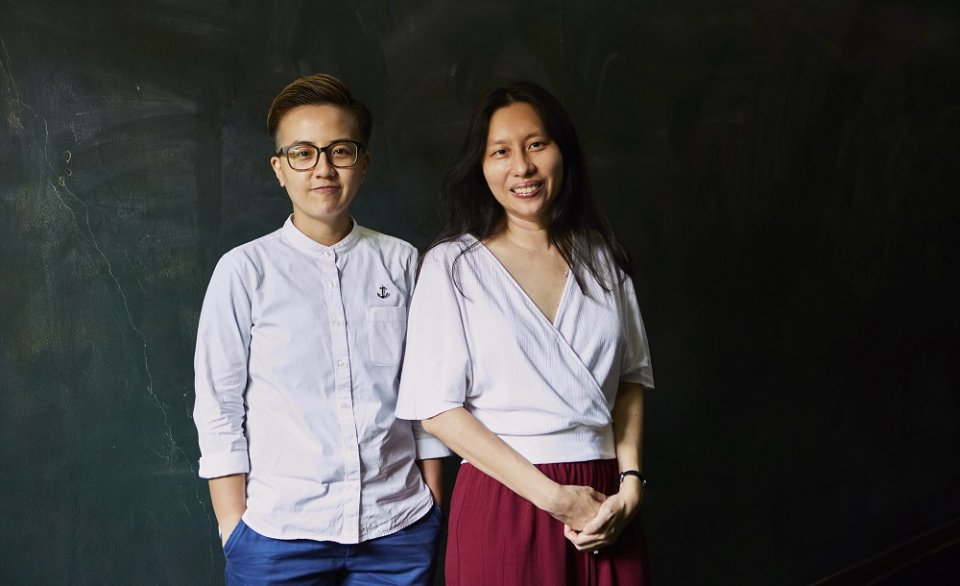
Han and Tay, who previously collaborated on Missing: The City of Lost Things (2018)
No regular performance, the experience takes place in a two-storey terrace house in Chip Bee Gardens. Upon entering the space, audiences are handed a Walkman player and a journal—the devices through which the day’s story will unfold. Inside, there is no fixed route; you are free to simply wander around the entire house, whether it’s in accordance to what you’re hearing and reading, or complete defiance.
Han shares that there are two layers to experiencing the performance: via the different objects scattered around, and the space in its entirety.
Constructing the set was a feat for the team. The rented house will be furnished from scratch with objects both donated and scavenged—including discarded furniture from residents of the soon-to-be demolished Pearl Bank Apartments nearby. It was back-breaking work, but certainly helps with creating a sense of authenticity and real nostalgia.
“For me, getting used items was important—it had to reflect a certain era, as well as echo the idea of remnants,” explained Han, who has a background in film and art direction. “When you have something that was once in someone else’s possession, the object naturally carries with it a certain kind of smell and age that can’t be replicated.”
With lighting and sound design from her fellow creative team members, Lim Woan Wen and Darren Ng respectively, the house and all its stories come to life.
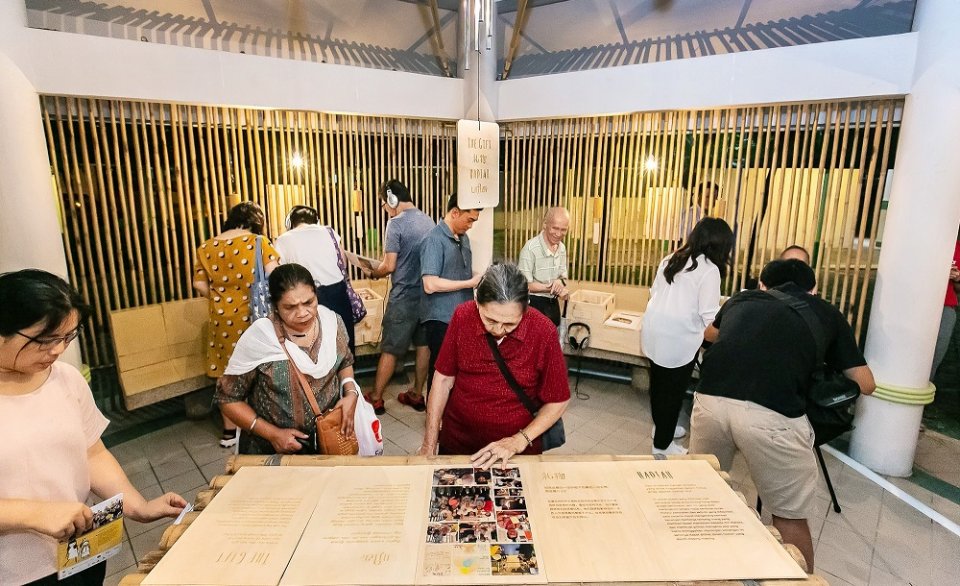
A 2018 work, Closer, where Han worked with a group of seniors in Chong Pang to ruminate on end-of-life issues
Completely unguided, the timed affair will end at a 75-minute mark, after which audiences will be invited into a decompression space to gain clarity on the issues explored. Seeing how intimate the experience is, every session is capped at 10 participants, with 36 sessions planned for the show’s run.
It is an ambitious work. Leaving the audiences to their own devices to curate their unique experience can be risky. But Han is counting on the relatability of Flowers, and its simple home setup, to hit its emotional targets.
Working with a broader topic also gave the team the opportunity to touch on ideas less realised in many sexual assault-focused works. Han shared that the performance will look at how the system of oppression affects everyone—even the perpetrators of the abuse.
“Often a lot of the focus is on the people who are abused within the system—directly, very explicitly abused, because it’s clearer. But even the oppressor himself or herself is kind of dehumanised in some way,” she added.
“To explore patriarchy within the family actually managed to help us not simplify the issue, but rather really reveal the complexities of it.”
Our interview with Han continues below.
Tell us more about Flowers and how it all came together.
With (Drama Box) we’re always constantly responding to our impulses, or some of the questions that we want to investigate. And going back to 2016, I thought it was time to investigate my emotional resonance with issues about sexual assault.
I personally have never experienced it, but somehow I could find myself resonating with incidents like that. So I went to speak to AWARE, just to have a conversation with the Sexual Assault Care Center to find out about what arts can do in this area of work. It was a process of thinking through and understanding where to anchor this project. So it went from sexual assault to looking at our different gender roles, into eventually arriving at a point where maybe we really have to look at the system, or part of it, which is patriarchy.
While we were looking at locations, we came across this house. I knew I wanted the house to be very much integrated into the entire project and not just a location. So how do I talk about patriarchy, when I have a house? Very naturally, we looked at something that a lot of people probably can resonate with, which is family.
What about patriarchal violence are you exploring?
In this family, it is insinuated that the father figure, the patriarch, is abusive to a certain extent—not to the extent of sexual abuse to the children; but rather his relationship with his wife, how he attempts to assert control and dominance over the entire family. It’s that exhibition of patriarchal tendencies.
The other thing we really wanted to explore was psychological violence. Jean and I had conversations with several people about their lived experiences as men and women in Singapore. From these conversations we heard stories about how it’s not always the men—sometimes it’s perpetuated, or in a way reinforced, by the mother figure.
And maybe when we experienced it, it wasn’t that explicit. But it left something in us—and we were trying to unpack why and how. So for instance, I (the patriarch) may not have to hit you, but every time during dinner, I’m sitting here, there’s a sort of expectation of how you should behave; and then without any kind of warning, suddenly I start banging the table. This kind of action—how does it generate a sense of pressure and trauma, especially on children growing up? We wanted to also explore that, because we found that they’re less visible, yet equally impactful; maybe even more.
What did you pick out from your conversations and research?
We met with people who have encountered violence of different severity—some are very clear-cut, some less so; more ambiguous. But we realised from talking to them that that ambiguity also drives them crazy. Like, (they would think) am I making this up? Am I being too sensitive? Is it my problem, did it happen; is it even an issue?
For me, it was interesting when I realised like ‘oh your family also has a certain kind of dynamic and problems’—but we don’t usually feel that they are problems worth sharing about, because we think they’re quite small. That ‘everyday’ aspect became something I wanted to really highlight.
Seems very specific to an Asian family.
Yeah, this project is actually very specific to Chinese families. It’s because the team are all Chinese, so we were working based on what we’re familiar with. But at the same time I was very cautious about whether it’s okay that this is only representative of the Chinese demographic, or a certain type of Chinese demographic within Singapore. My way of compensating for that is to have this post-show space, where we can have a timeline of sorts of what has been done throughout the years by different individuals and organisations, with regards to all sorts of issues.
On that note, how does Flowers fit into the current arts scene, where a lot of other performative works out there are exploring the same issues?
There were many considerations in terms of how do we want this project to contribute to ongoing conversations. If you look at this year alone, there were actually a lot of projects recently about the topic of sexual assault, about #MeToo. So I was quite glad that this project didn’t end up being about sexual assault, because I feel like those projects and some of the play reads I’ve gone to actually cover it quite well.
(Also,) we often hear that some people would feel like they don’t know how to relate to this issue in a very personal way; it’s something that happens to other people, not them. And not just in terms of sexual assault, but it could be gender-based violence, physical, verbal; discrimination. Some people would feel like ‘What does this have to do with me?” So we were trying to also respond to that.
What do you hope for the audience to take away from this?
I hope that this will be a space that can provide them the chance to consider what the cost of patriarchy is in their own lives. We were always very realistic that patriarchy is not going to be resolved; we are not going to be able to change mindsets with one project. The project was never about changing mindsets, or changing behaviour or lifestyle. But it’s about taking that time to stop and reflect a bit about the impact of patriarchy on your life—and hopefully from there, we can then have more conversations about what we want to do about it.
Flowers runs from May 1-5 at various timings, at 74 Jalan Kelabu Asap. Tickets are $30 here. More information is available here.


